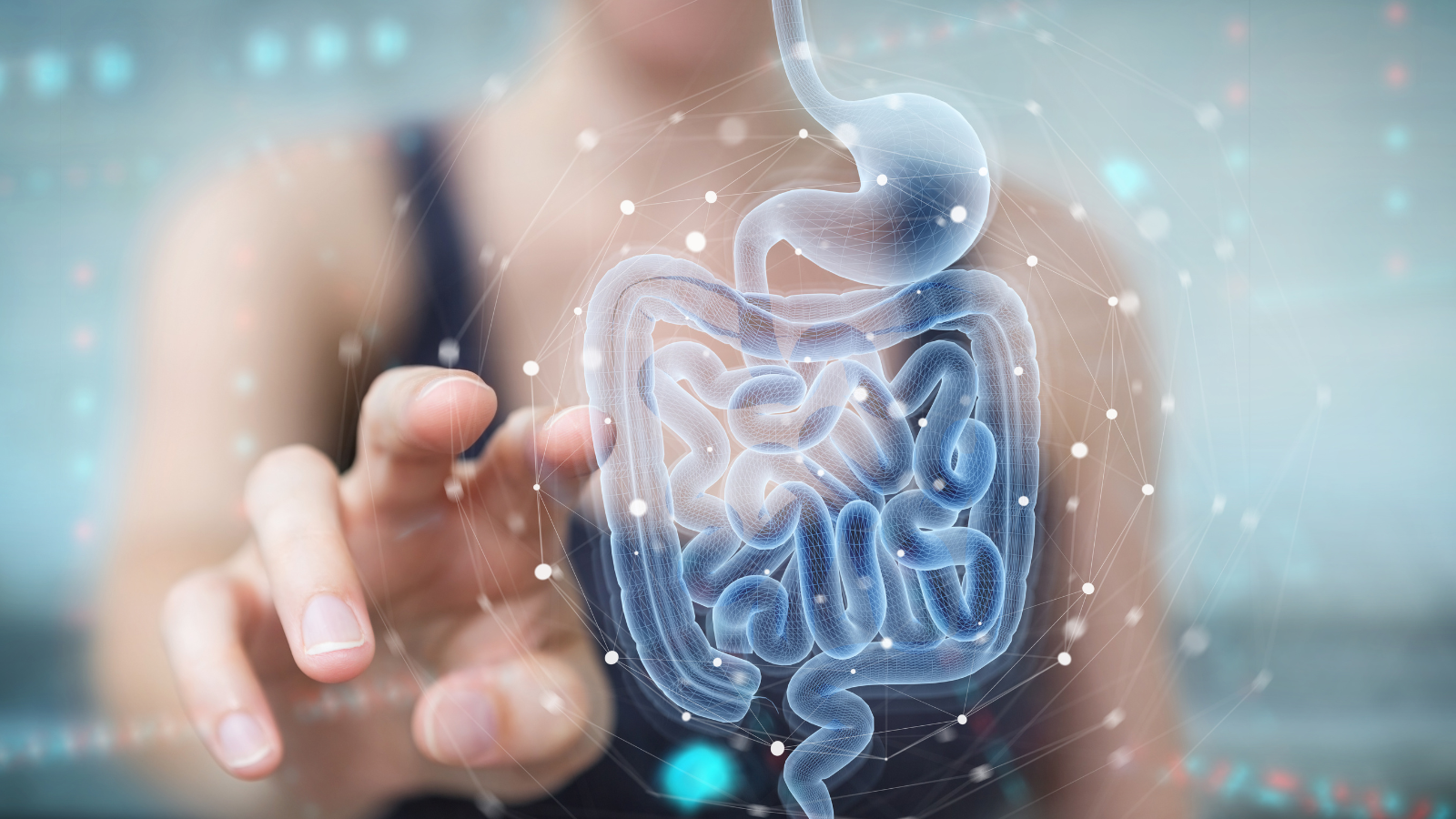Our gut flora – or microbiome – often is an important indicator of our physical health. But did you know that recent studies even show that our gut – and therefore the food we consume – affects our mental health as well? Knowledge about the connection between our gut and brain is still in its infancy; while scientists learn more, the number of food companies diving into this niche is already growing. We highlight five studies and predictions on the future of gut health.
Intestinal flora is a collective term for all the bacteria that live in the gut. In an individual weighing 70kg, the human gut microbiota gathers more than 100 trillion microorganisms and weighs about 200g. There are also 150 to 200 times more genes in this individual’s microbiota than in all of their cells put together. The different types of microbes that live in our gut have a big effect on our immune system. Intestinal bacteria can be divided into beneficial and harmful bacteria; in healthy intestinal flora, beneficial and harmful bacteria are in balance with each other. Researchers also have shown that the consumption of fast food, alcohol and sugar influences our microbiome and can cause inflammation and disease.
Foods affect feelings
Belgian bioinformatician Jeroen Raes discovered that our gut flora doesn’t only affect physical health; our mental state is also related to our gut. Together, with additional researchers from the Katholic University of Leuven, Raes examined the bowel samples of 1,054 Belgians. The results of the study were published in Nature in 2019. Turns out people who feel less happy or even depressed are missing certain bacteria in their guts. In an article in the Dutch Newspaper NRC, Raes points out three possible theories for how certain gut bacteria affect our state of mind:
The first theory revolves around inflammatory responses. It’s possible that there is an increased risk of gut inflammation when certain bacteria are absent.
A second theory assumes that inflammation in the gut may be linked to inflammation in the brain.
The third theory states that gut bacteria may be able to produce certain substances that affect our brains, like dopamine, serotonin, acetylcholine and gamma-aminobutyric acid - substances that nerve cells in our brains use to communicate with each other.
Prebiotic and probiotic foods
Staying healthy requires a thriving gut microbiome, so that beneficial gut bacteria can support the immune system. They do this by breaking down fiber into short-chain fatty acids, which have been shown to stimulate the activity of immune cells. These beneficial gut bacteria need to be fed fibers, or as they are called ‘prebiotics’; they feed microbes.
Prebiotic foods include:
- garlic
- onions
- leeks
- asparagus
- Jerusalem artichokes
- bananas
- seaweed
Probiotics are living microorganisms that are said to have a positive effect on restoring the balance in your microbiome by suppressing harmful gut bacteria and giving disease causing organisms less of a chance to pass through the intestinal wall.
Probiotic foods include:
- kefir
- yogurt (with live active cultures)
- fermented vegetables
- sauerkraut
- tempeh
- kombucha tea
- kimchi
- miso
Depression: a worldwide health threat
For years obesity has been described as one of the great risk factors surrounding human health worldwide, causing heart disease and diabetes. However, depression has become a public health problem that cannot be ignored either. If current trends in depression incidence continue, it will become one of the top three global disease burdens by 2030. According to a new study published in The Lancet, people with depressive symptoms harbor a significant risk of new-onset chronic diseases in the middle-aged and elderly population, therefore providing evidence for the potential value of active depressive symptom management.
In a study published in August 2022, depressive symptoms were shown to be influenced by our microbiome. In turn, depressive symptoms can also lead to intestinal dysfunction or other intestinal organic diseases through multiple pathways, such as endocrine, neurological, immune, and intestinal microbial homeostasis imbalance. Although the study focused on proving the connection between depression and long term chronic disease, taking care of good gut health was shown to potentially help in preventing depression, and vice versa.
Metabolical
Robert H. Lustig is well known for raising awareness on the importance of healthy diets. Lustig rose to fame in 2009 with his bestseller Sugar: The Bitter Truth, in which he exposes the links between the overconsumption of sugar and our health. In his latest book, Metabolical, published in 2021, Lustig looks even further beyond the consumption of sugar.
Making the case that food is the only lever we have as individuals to affect biochemical change to improve our health, Lustig theorized that medicine for chronic disease only treats the symptoms, and not the diseases themselves. To treat chronic diseases, individuals should look to change their diets. Lustig outlines two novel criteria: protect the liver, and feed the gut. He insists that if we do not fix our food and change the way we eat, we will continue to court chronic disease, bankrupt healthcare, and threaten the planet.
Fermented foods as a remedy
Fermented foods play an intriguing role in creating a healthy microbiome. Simply put, fermentation occurs when food rots. In more complex language, fermentation is a metabolic process that produces chemical changes in organic substrates through the action of enzymes and uses a wide variety of methods. Bacteria released during fermentation are also called probiotics, which are good for your gut and are able to survive the stomach acid to reach the intestines.
Scientific research has been conducted on how fermented food influences our health. A study published in the scientific journal Cell aimed to find out what impact fermented foods have on the gut and immune system, and how it compares to eating a relatively healthy diet full of fruits, vegetables, beans, whole grains and other fiber-rich foods.
For the study, researchers split 36 healthy adults into two groups. One group was assigned to increase their consumption of fiber-rich plant foods, while a second group was instructed to eat plenty of fermented foods. After the 10-week period, neither group showed significant changes in overall immune health. But the group that ate more fermented food showed marked reductions in 19 inflammatory compounds, including interleukin-6, an inflammatory protein that tends to be elevated in diseases such as Type 2 diabetes and rheumatoid arthritis. Thus, research results did indicate that fermented foods may be valuable in countering the decreased microbiome diversity and increased inflammation pervasive in our industrialized society.
Although the microbiome of the individuals who ate more fermented foods significantly changed, just five percent of the new microbes that were detected in their guts appeared to come directly from the fermented foods they ate. In an NYT article by Justin Sonnenburg, one of the authors of the study and a professor of microbiology and immunology at Stanford University, he outlined different explanations: “I think there were either low level microbes below the level of detection that bloomed, or the fermented foods did something that allowed for the rapid recruitment of other microbes into the gut environment.”
Although the results of the research cannot yet pinpoint how the fermented foods create a healthier gut, what is certain is that fermented foods have been used for centuries before. For thousands of years, people have relied on fermentation to preserve food and make sure that there was enough variety during winter and times of scarcity. Fermented food is ‘alive’ and keeps changing and taking different forms, and the microorganisms they contain are constantly producing many nutrients during the process.
The rise of “mood food”
In 2021, change psychologist and trendwatcher Herman Konings signaled the rise of ‘mood food.’ According to Konings, a blind faith in promising dietary fads is subsiding, while an awareness of the positive influence of bacteria on our health is growing. “We can expect the unfolding of a gut health market with science-based, customized bacterial products.” Global Markets Insights valued the global probiotics market size at $48.88 billion in 2019 and projects the market to reach $94.48 billion by 2027, which backs Konings assumption. In 2019 – just before the Covid-19 pandemic hit – the forecast was still substantially lower. The rise is credited to the development of tailor-made programs and partnerships with both food startups and traditional food manufacturers.
American biotech start-ups like Ixcela and Thryve are already dumping the one-size-fits-all paradigm and enabling consumers to monitor, maintain and improve the health of their microbiome with probiotics. To do this, individuals can sign up for a subscription formula, after which they receive a test kit, take a drop of blood and send it back with a so-called Internal Fitness Profile - the identity card of each unique gut microbiome. From then on, a slew of personalized nutritional supplements are distributed monthly and a new – note the tongue loosener – mail-order blood prick kit every three months for follow-up.
Konings: “Consumers will increasingly look for personalized nutrition services that can offer both insight and practical recommendations.” According to Konings we should interpret those ‘nutrition services’ broadly. “Not just the dietician or reformer, but the snack producer, mixologist or pizza chef as well”. Konings calls out all people working in food to awaken their inner mood professional!”
 Written by
Written by 








